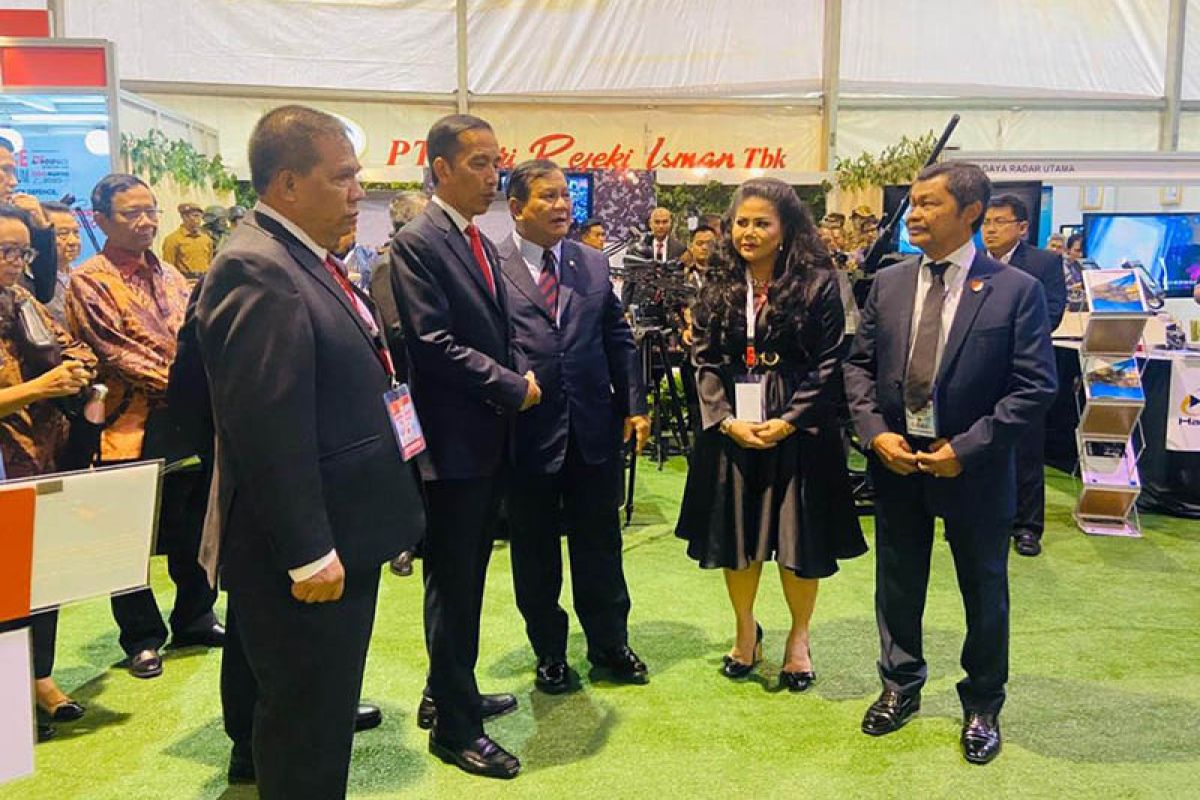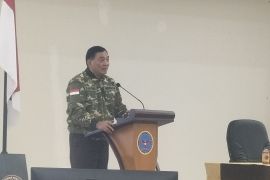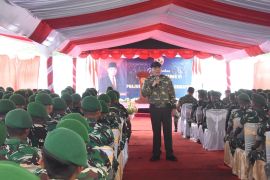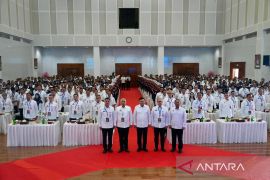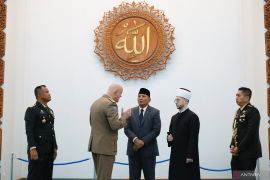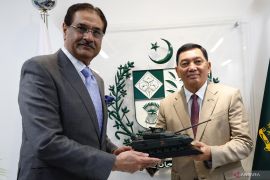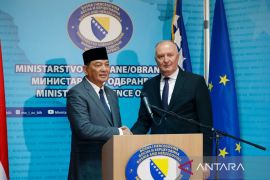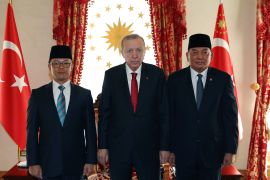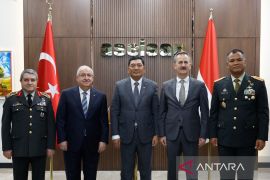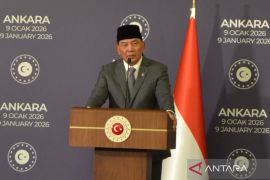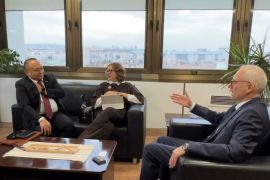They are also willing to offer US$11 billion worth of funding as well as conduct transfer of technology to the domestic defense industry.
This certainly boosts enthusiasm, especially by capitalizing on opportunities presented by the Job Creation Act, wherein defense companies in the private sector (BUMS) and state-owned enterprises (BUMN) can both produce defense equipment on an equal basis, as well as open opportunities for foreign companies to cooperate with local partners, Chairman of Pinhantanas Evi Lusviana noted in a statement.
Lusviana, accompanied by Major General (Ret.) Jan Pieter Ate noted that potential investors from Belgium, Spain and the United States had shown interest and constantly inquired when they could invest a total of US$11 billion.
Of course, they are interested on account of the conditions, including the certainty of purchasing their products later.
"The government has not responded to this although we are ready and have a location to build a factory," Lusviana stated.
Amid the COVID-19 pandemic that has dealt a major blow to defense companies in the private sector and had a serious impact on the businesses of its members, Pihantanas is promoting a program to raise enthusiasm and passion of the Indonesian defense industry by looking at regional and international markets to avoid being limited to the domestic market.
"They must have the courage to export, especially to countries in Africa and around Indonesia, such as Papua New Guinea and Timor Leste," according to Lusviana.
In fact, several African countries, including Sudan, Mozambique, and the Democratic Republic of Congo, have expressed interest in the defense and security equipment products of Pihantanas members, she noted.
Related news: Indonesia, Zimbabwe to intensify bilateral defense cooperation
Related news: Indonesia-Turkey defense industry cooperation should be strengthened
Pinhantanas has urged the government to salvage the domestic private defense industry and is optimistic that the 76th anniversary of Indonesia's independence would offer the right momentum for the revival of the national defense industry to purchase domestic defense products to meet the needs of the Indonesian military (TNI) and the national police (Polri), so that dependence on imported products can be reduced.
We only urge the government to buy domestic products, as we also have the ability to produce several types of defense and security equipment (alpalhankam) to cater to the needs of the TNI and Polri. To this end, Lusviana questioned the need to import when they can be independently produced.
Reduce imports
Lusviana noted that the import ratio was still very high, reaching over 80 percent of the total defense requirements, and to this end, the government should set a target annually and every five years to reduce imports.
"In the next five years, our import volume should be reduced to 70 percent or even 65 percent," Lusviana emphasized.
"We, from the private sector, are ready and able to work with the government to make this happen. Place trust on us and order from us to make the products required by the TNI and Polri, and then we will prepare them. Help us to also export," she stressed.
Lusviana noted that in countries with developed defense industries, the government had intervened directly by imposing sanctions on users continuing to imports despite the products being produced domestically.
Meanwhile, Major General (Ret.) Jan Pieter Ate called on the government to view the defense industry as an important sector for Indonesia's strategic interests as a big nation.
It is time for the government to extend support to private entrepreneurs in this strategic industry, according to Ate.
The government owns the shares and does not view the defense industry as a normal business, he noted.
Ate remarked that potential buyers from outside often inquired whether the defense industry’s products were being used domestically.
"Purchase products of the nation's children. With the government's intervention, our defense industry will develop and our country will also be in the elite group of producers of defense and security equipment," Ate emphasized.
Research and development
Lusviana also called on the government to be serious about strengthening research and development related to defense technology.
Advancement of the domestic defense industry will be achieved if research and development activities are seriously promoted by the government.
"We are optimistic that the National Research and Innovation Agency (BRIN) with the Chair of the Steering Committee, Megawati Soekarnoputri, would bring about big changes. We are ready to cooperate with BRIN," she emphasized.
Lusviana stated that the defense industry was different from the food, clothing, steel and other industries that had a broad market.
The defense industry has its own characteristics, specifically capital-intensive, technology-intensive, and a single market, which is the military, and some of the police.
If the TNI and Polri do not side with the domestic defense industry, she believes it will be difficult for them to develop.
"To survive, our products must be purchased by the user. Without it, Indonesia's defense industry will fall one by one, and Indonesia would only become a net importer of defense and security equipment," Lusviana stated.
The COVID pandemic is believed to have a major impact on the defense industry business, and this condition should be addressed as a challenge to maintain business sustainability.
One approach is to develop a strategy to penetrate foreign markets through exports.
Related news: RI-Sweden cooperation to have impact on defense industry development
Related news: President champions development of self-reliant defense industry
Editor: Sri Haryati
Copyright © ANTARA 2021
